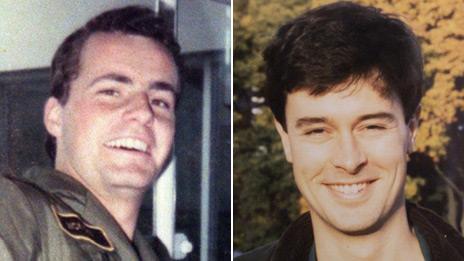Mull of Kintyre Chinook crash: Grief and pain 30 years on
- Published
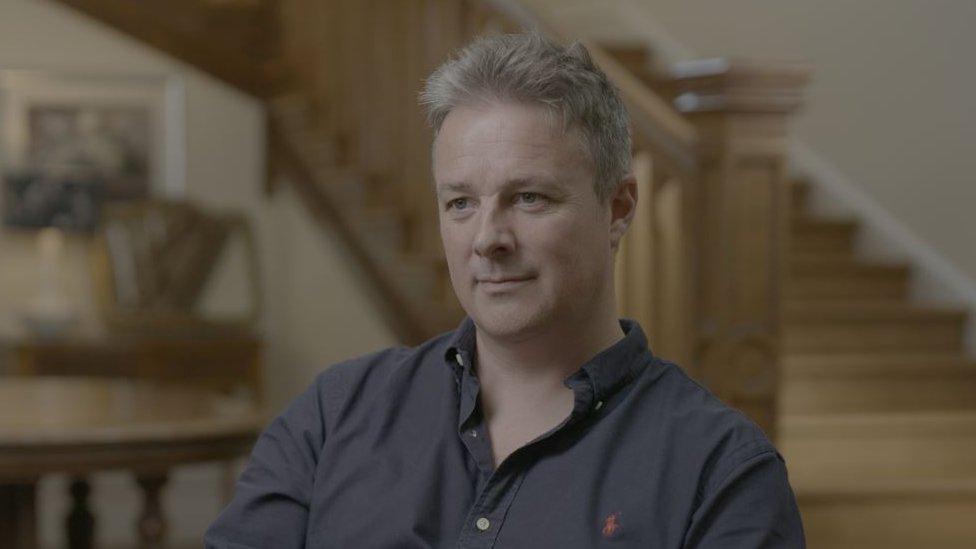
Niven Phoenix heard the news of his father's passing on his car radio
Niven Phoenix was 21 years old and training to be pilot when he got the call telling him to go home.
By the time he was in the car, the radio was reporting the worst.
A Chinook helicopter had crashed in the Mull of Kintryre in Scotland after leaving Northern Ireland. There had been no survivors.
It was 2 June 1994. His father Det Supt Ian Phoenix and 28 other people had lost their lives.
"It just sort of floored me and I had to stop the car," he told BBC News NI.
"My friend, who was with me, had to take over and drive me home."
It was the worst peacetime accident in the history of the RAF. On board were leading security personnel from the Royal Ulster Constabulary (RUC), MI5 and the Army.
They had been travelling to a security conference in Inverness, just two months before the 1994 IRA ceasefire.
Now the crash - the exact cause of which remans unknown - and the controversial investigations that came in its aftermath are the subject of a new two-part BBC Northern Ireland documentary, Chinook: Zulu Delta 576.
The documentary looks at the ongoing impact of what happened that day, from the devastation caused to family members to the inquiry that blamed the pilots, sparking a two-decade campaign to successfully clear their names.
Niven, who contributed to the documentary, said his father joined the RUC after a stint in the Army, rising through the ranks to become a detective superintendent in Special Branch.
His father could be strict, said Niven, but that was a reflection of the high-pressure environment of working as a senior police officer in the midst of the Troubles in Northern Ireland.
"We did have a good relationship and we did love each other," he said.
He remembers the day of the accident vividly - the phone call, in which he was told to go home; asking officers what was going on but getting no further information; the radio report and his friend driving him the rest of the way.
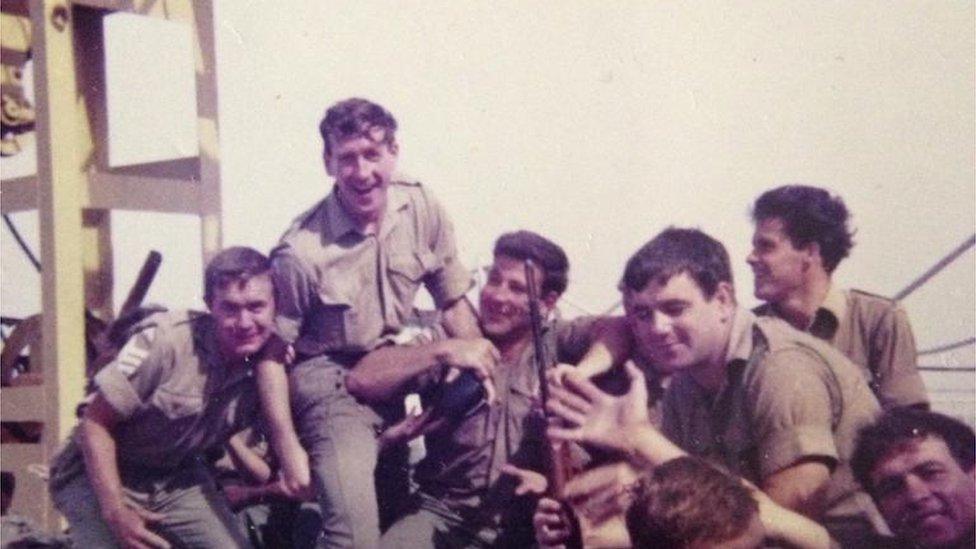
Ian Phoenix spent time in the Army before rising through the ranks of the RUC
He remembers the aftermath too, the comfort found in people walking up the hill to his family's house that night.
"People were very caring, they felt it personally. There was a heavy attachment to the police and military when you're growing up in Northern Ireland, they are often seen as the protectors," he said.
Speaking about how the family dealt with the passing of his father, Niven said it was a "long process".
"It doesn't go away, grief stays with you and your life grows around it. You just have to get on with it and be grateful for the things you did have," he said.
"We were very grateful for the time we had with my father, his funeral was probably one of the proudest days of my life, when I saw all the people - and I managed to speak at his funeral as well."
One thing that struck him even then, he said, was that there were "worse ways" for a policeman to die in Northern Ireland at that time than in an accident.
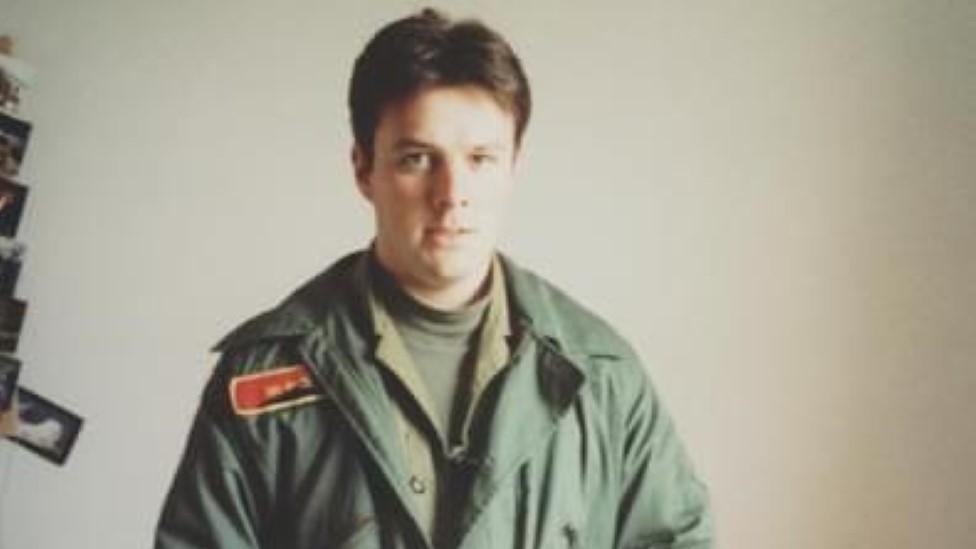
Niven says his father played a strong role in his career choice as a pilot
From the beginning, he said, his family had no anger towards the crew, believing that "accidents happen".
Niven was already on the path to becoming a pilot when his father died but believes the crash was a "formative experience" for his career going forward in relation to safety.
"My time in the military was coloured by how I viewed the hierarchy in that, for want of a better phrase, I couldn't trust them," he said.
He often turned down operations which he felt were not planned out or safe and that, because superiors were aware of his father's death, he was never questioned about it.
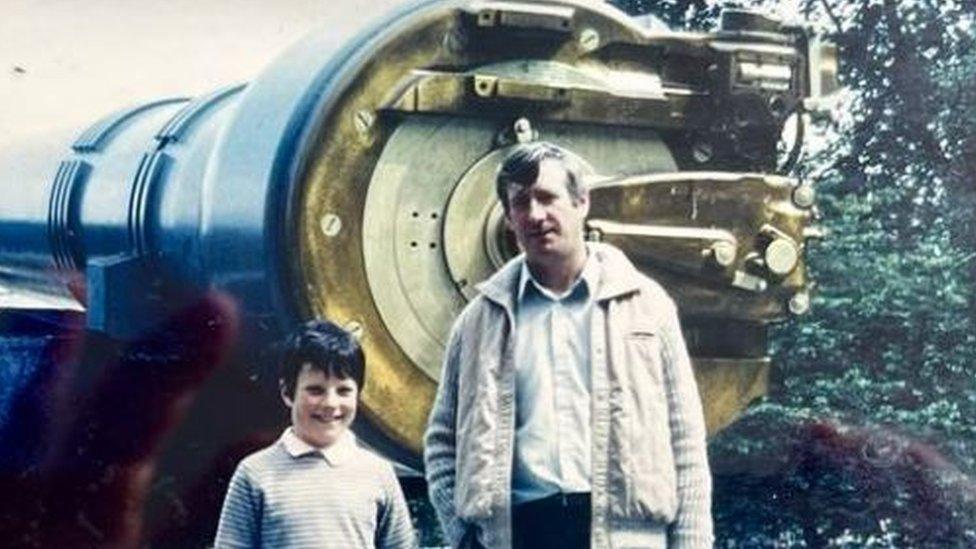
Niven said the manner of his father's death 'coloured' his view of the hierarchy in his military career
Trevor Birney, the director of the new documentary, was a young journalist working for Downtown Radio when the crash happened.
"As a reporter there's always stories that resonate with you and stick with you," he said.
"There was the loss of life, the high calibre of personnel on board and then the were the years of injustice."
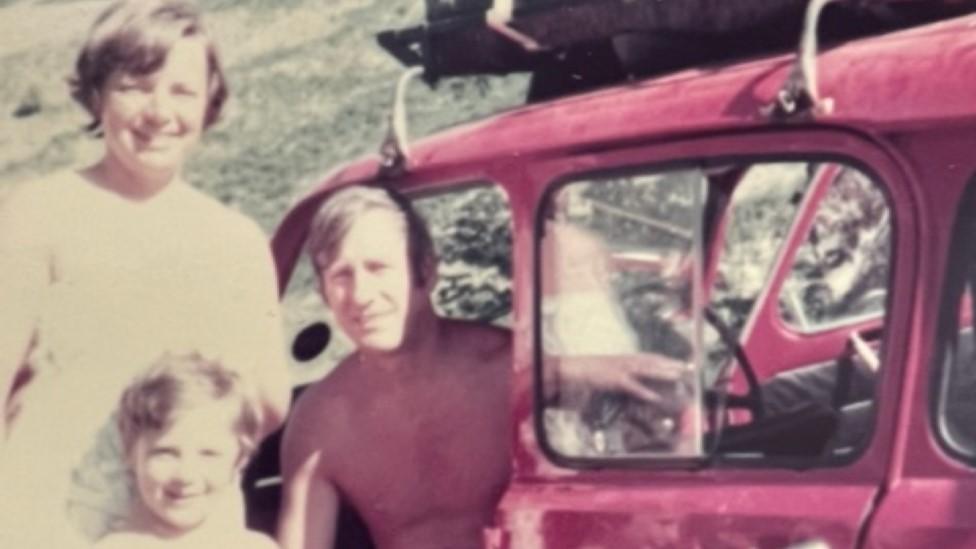
Mr Birney says hearing the voices of families, such as the Niven's , was important to see the real impact
He compared the controversy to the ongoing the Post Office IT scandal.
The RAF was heavily criticised for its board of inquiry's finding that gross negligence on the part of the two pilots was to blame.
The two men, Flt Lt Jonathan Tapper and Flt Lt Richard Cook, were eventually exonerated of any blame after a two-decade long campaign led by their families.
"Here in Northern Ireland we are used to families alleging collusion or looking for the truth," said Mr Birney.
"This is the very establishment itself, 10 RUC men, six from MI5, four crew and nine from the British Army - if the RAF refused to give them the truth what chances does anyone else have?"
He added that speaking to the families was a vital part of the story.
"Sometimes we don't get the chance to pause, its not just a statistic or a name on a plaque on a wall, this had real impact and devastation to the Phoenixs and those others involved
Chinook: Zulu Delta 576 will be broadcast on BBC One Northern Ireland at 22:40 GMT on 29 January and BBC Scotland at 22:00 on 30 January. It will also be available on BBC iPlayer.
- Published2 June 2019
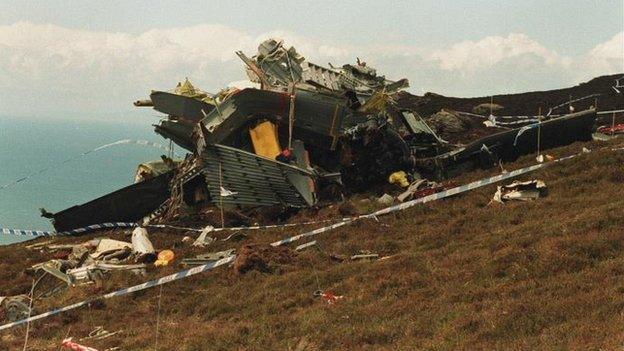
- Published3 June 2014
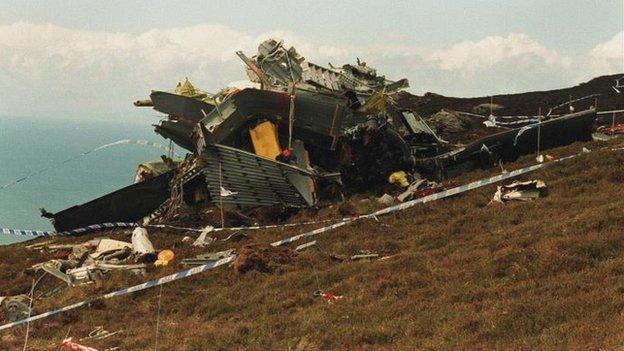
- Published13 July 2011
